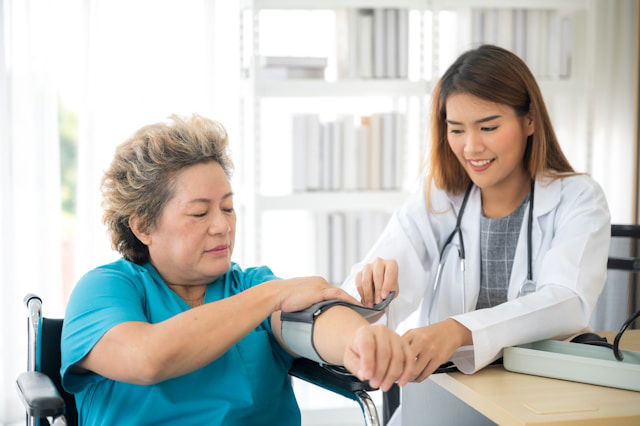
High blood pressure, also known as hypertension, is a serious health problem that affects millions of people around the world. It happens when the force of blood pushing against the artery walls is too strong for a long time.
Over time, this pressure can damage blood vessels and increase the risk of heart disease, stroke, kidney damage, and even vision problems.
Most people manage high blood pressure by living a healthy lifestyle. This means eating good food, staying active, handling stress, and sometimes taking medicine.
But a new study from Harvard University has found a hidden problem: some people with high blood pressure may be taking other medicines that actually raise their blood pressure even more.
This study was led by Dr. Timothy Anderson and published in JAMA Internal Medicine. The researchers looked at data from a big health survey in the U.S. called the National Health and Nutrition Examination Survey. They found that nearly 1 in 5 adults with high blood pressure—about 18.5%—were also taking drugs that can raise blood pressure.
These include:
– Antidepressants like venlafaxine and tricyclic antidepressants
– Pain relievers such as ibuprofen and naproxen (these are called NSAIDs)
– Steroids like prednisone
– Hormone-related drugs, such as birth control pills and hormone replacement therapy
– Cold medicines with decongestants like pseudoephedrine and phenylephrine
– Weight-loss drugs like phentermine
The study showed that people who took these kinds of medicine were more likely to have trouble keeping their blood pressure under control. Even if they were taking medicine to lower their blood pressure, they often needed higher doses if they were also using these other drugs.
This is important because many of these medicines are very common, and some you can buy without a prescription. People might not know that a cold or allergy pill could be making their blood pressure worse.
The risk is even greater when people see different doctors for different health problems. One doctor might not know what another doctor has prescribed, so no one keeps track of the full list of medicines.
That’s why it’s very important to tell your doctor or pharmacist about every medicine and supplement you take—even if it seems minor. If you have high blood pressure, ask your doctor if any of your current medications might be raising it. There may be safer options.
Besides reviewing your medications, lifestyle changes can also help lower blood pressure:
– Eat healthy foods like fruits, vegetables, whole grains, lean proteins, and low-fat dairy. Avoid salty snacks, sugary drinks, and highly processed foods.
– Get regular exercise—try to move your body for at least 30 minutes most days.
– Find ways to relax, like doing yoga, breathing exercises, or just spending quiet time.
– Avoid smoking and limit alcohol, as both can raise blood pressure.
Keeping your blood pressure in a healthy range is one of the best things you can do to stay well. This study is a reminder that even helpful medications can sometimes have side effects in other areas of your health.
By staying informed and working with your healthcare team, you can build a plan that supports both your blood pressure and your overall health.
Some natural remedies, like beetroot juice and certain plant-based nutrients, may also help lower blood pressure. Scientists are also studying the best time of day to take blood pressure medicine and are working on new treatments to make managing blood pressure easier in the future.
If you care about high blood pressure, please read studies that early time-restricted eating could help improve blood pressure, and natural coconut sugar could help reduce blood pressure and artery stiffness.
For more information about blood pressure, please see recent studies about How to eat your way to healthy blood pressure and results showing that Modified traditional Chinese cuisine can lower blood pressure.
Copyright © 2025 Knowridge Science Report. All rights reserved.



